Western Bay of Plenty faced storm damage, flooding and the council successfully added a Māori ward after two failed attempts. Local Democracy Reporter Alisha Evans looks at the highs and lows for the district in 2023.
Severe weather marred the Western Bay’s normally sunny disposition. On January 29 it hit the district hard, eroding roads and washing out a bridge in Te Puke.
It left the residents of No 4 Road with limited access until March when a temporary Bailey bridge was installed. Construction of a replacement bridge is likely to start in September 2024.
The storm damage bill for roads around the district totalled $20m after January’s weather bomb rolled through.
But the weather woes weren’t over, flash floods ripped through the seaside town of Waihī Beach on May 29.
Described as the “most violent of weather” the floods forced 27 people, including 11 pensioners and two families, from their homes.
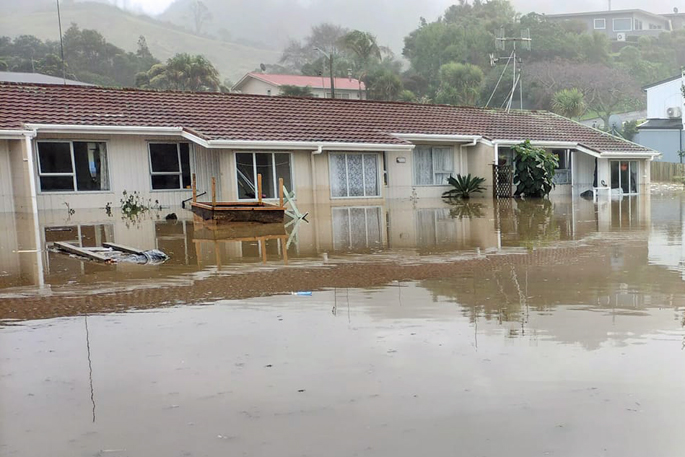 The water rose to window height at the pensioner flats during the May flood. Photo: Susan Lean/Supplied.
The water rose to window height at the pensioner flats during the May flood. Photo: Susan Lean/Supplied.
Waihī Beach Community Board chair Ross Goudie said if the floods had happened at night “we may have lost somebody”.
Western Bay of Plenty District Council faced vitriol from the beach community, many of whom believed the floods could have been avoided if the town’s dam was lowered.
They had also called for upgrades to the stormwater system since flooding in 2012 but felt the council hadn’t delivered.
Council’s stormwater project leader James Abraham admitted the stormwater network didn’t have the capacity to cope with the deluge but said they didn’t get an official localised warning that would have prompted them to lower the dam.
Seven of the council-owned pensioner flats will be demolished because they’ve been deemed unsafe. The council also set up a stormwater action group to prioritise $19m of projects to improve the stormwater system.
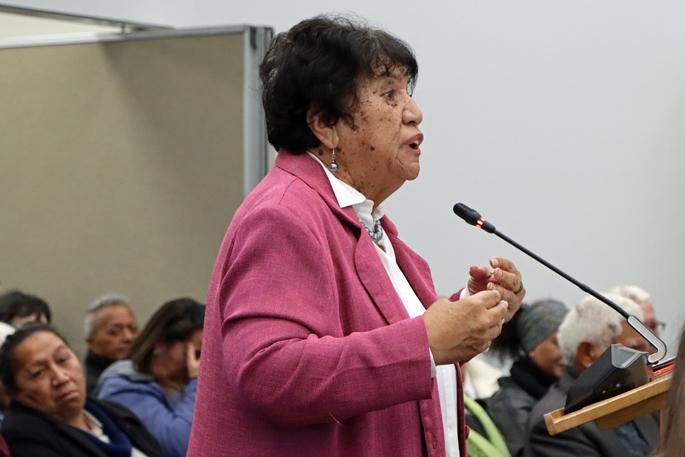 Mabel Wharekawa-Burt said it felt glorious that a Māori ward would be established in the Western Bay of Plenty. Photo: Alisha Evans/ SunLive.
Mabel Wharekawa-Burt said it felt glorious that a Māori ward would be established in the Western Bay of Plenty. Photo: Alisha Evans/ SunLive.
Momentous day for mana whenua
Waiata rang out as Western Bay councillors voted nine to three in favour of introducing a Māori ward in the district.
It was a battle long fought by mana whenua who had been waiting 12 years since the first attempt to implement Māori wards.
In 2011 the council decided not to establish one and in 2017 the council opted to have a Māori Ward, but it was subject to a poll requested by the public.
It was voted down in the poll with 78 per cent of the respondents opposed, just over 40 per cent of eligible voters took part.
Mayor James Denyer said it was a “momentous day, particularly for mana whenua.”
Mabel Wharekawa-Burt, of Katikati, told LDR: “I'm ecstatic for my grandchildren. I just wanted the right to make my own choice.”
Not everyone was happy and Waihī Beach Community Board deputy chairperson Alan Kurtovich resigned after their introduction prompting a by-election.
The council choosing not to consult with the community about the wards was “the last straw”, for the first-time community board member.
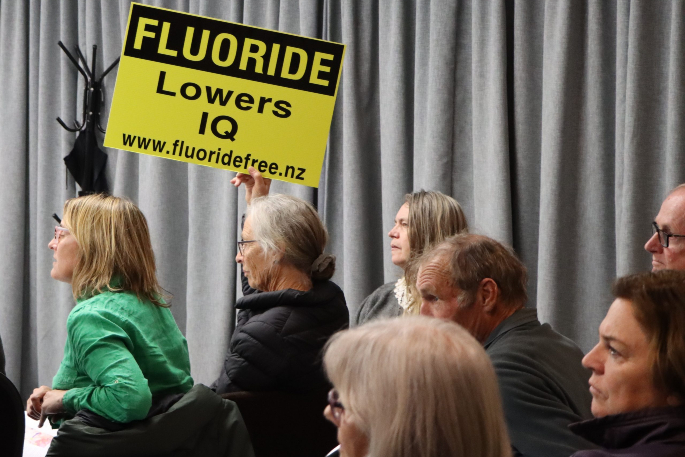 People against fluoridation sported signs at the Waihī Beach Community Board. Photo: Alisha Evans/SunLive.
People against fluoridation sported signs at the Waihī Beach Community Board. Photo: Alisha Evans/SunLive.
To fluoridate or not?
The government’s mandate to fluoridate two of the Western Bay’s water supplies gave councillors and community members a sinking feeling.
The council wrote to the Director General of Health for an exemption, but this was denied.
Fluoride Free NZ members attended community boards and council meetings across the district urging the council to file an injunction against the directive.
A High Court ruling, in November, said the national fluoridation directive was unlawful. This didn’t quash the directive however and the council will still need to fluoridate the Athenree and Wharawhara water supplies by July 31, 2025.
None of the district’s eight water supplies are currently fluoridated.
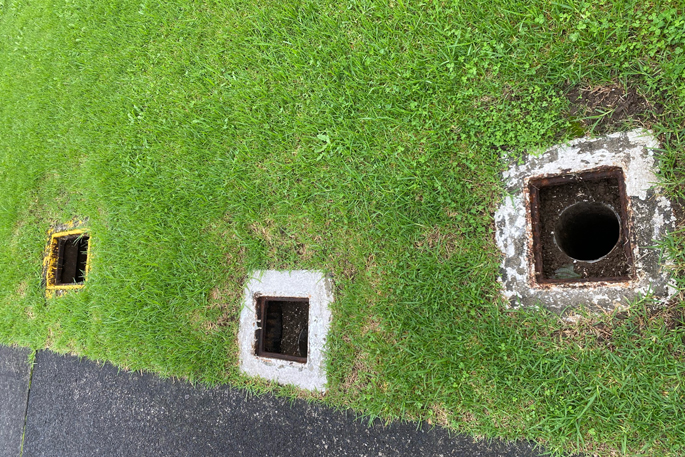 The theft of fire hydrant lids had council scratching their heads. Photo: WBOPDC.
The theft of fire hydrant lids had council scratching their heads. Photo: WBOPDC.
Fire hydrant lids become hot property
The theft of fire hydrant lids in Te Puke and Paengaroa had council flummoxed.
Council’s network team leader Peter Edwards said council was unsure sure why the lids had become hot property but he suspected they were sold for scrap metal.
The six lids that were taken cost council $90 to $1000 per lid to replace depending on if any damage was done during their removal.
A dog’s day
Dogs got their day out with the district’s first dog park opening in Te Puke in October.
The fully fenced park provided separate areas for high energy dogs and a chill zone for those needing to take it easy.
Despite the dog park's popularity adding more has been a challenge for council.
The proposed area for a dog park at Links View Reserve in Ōmokoroa has been met with opposition so council will consult with the community to find a suitable spot.
Katikati’s dog park at Donegal Reserve will have a chill zone for small dogs, a high energy zone and an area for agility.
The council committed $30,000 for a park in each area but this wasn’t enough to cover the cost which had councillor Rodney Joyce worried.
Council staff said the $30,000 was the maximum council would contribute to each park and the rest needed to come from external funders and possibly the community boards.
Work on the Katikati dog park will begin this year.
LDR is local body journalism co-funded by RNZ and NZ On Air


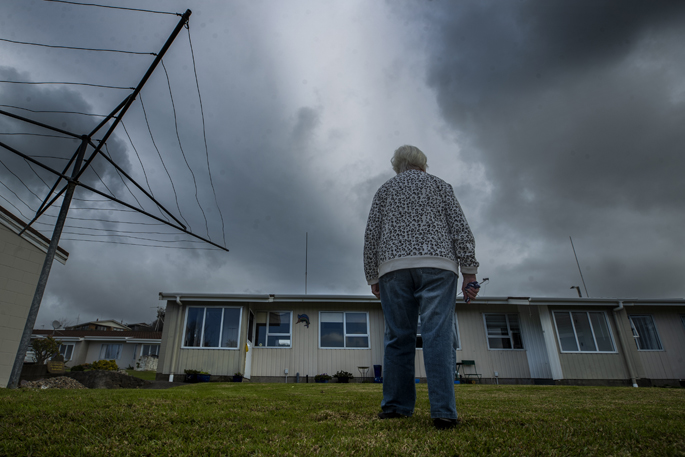

0 comments
Leave a Comment
You must be logged in to make a comment.